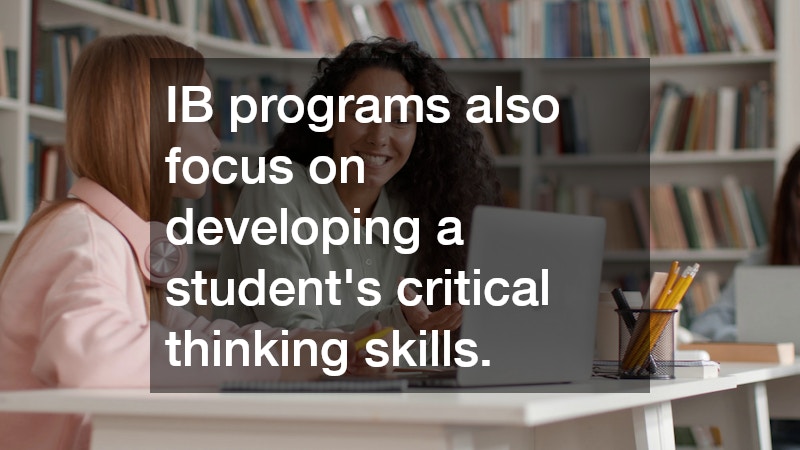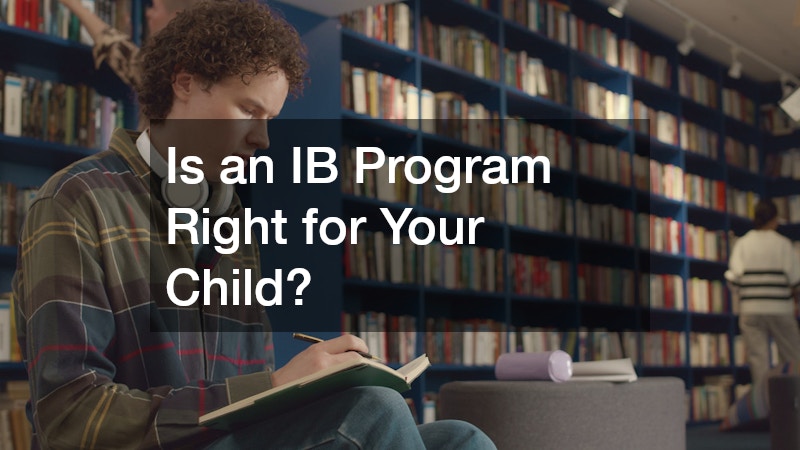International Baccalaureate programs are a globally recognized educational framework that aims to develop inquiring, knowledgeable, and caring young people. These programs are designed to foster critical thinking, intercultural understanding, and respect for others, alongside academic excellence. The IB offers four major programs catering to students aged 3 to 19, each targeting specific educational milestones.
The Primary Years Programme (PYP) focuses on the holistic development of children aged 3 to 12, emphasizing inquiry-based learning and student agency. The Middle Years Programme (MYP) serves students aged 11 to 16, nurturing the development of practical connections between their studies and the real world. The Diploma Programme (DP), one of the most popular IB programs, targets students aged 16 to 19, aiming to prepare them for higher education while promoting breadth and depth of knowledge.
Finally, the Career-related Programme (CP) is designed for students aged 16 to 19 who wish to engage in career-related learning. This program integrates academic and practical skills tailored towards specific career paths. Overall, IB programs are known for their rigorous curricula, with schools around the world striving to meet the standards set by the International Baccalaureate Organization. With these programs, students are equipped with the qualities necessary to succeed in a globalized world.
Benefits of Enrolling Your Child in an IB Program
One of the primary benefits of enrolling your child in an IB program is the emphasis on global-mindedness and cultural awareness. The curriculum is designed to expose students to diverse perspectives and encourages them to appreciate multiple viewpoints. As a result, students often develop skills that enable them to thrive in multicultural environments.
IB programs also focus on developing a student’s critical thinking skills. Through various interdisciplinary projects and curricular demands, students learn how to approach complex issues analytically and ethically. This engagement not only prepares them for the challenges of higher education but also instills a lifelong love for learning.
Furthermore, IB programs foster personal development and responsibility. The curriculum requires students to participate in community service and extracurricular activities, emphasizing the importance of balancing academic achievement with personal growth. By the time students have completed an IB program, they often possess a well-rounded skill set that can be applied in diverse contexts.
Challenges and Considerations
While the IB programs offer many advantages, it is important to consider the challenges that may accompany this educational path. One significant challenge is the rigorous academic load, which can be demanding for some students. The workload necessitates a high level of commitment and maturity, often requiring students to manage their time effectively.
Another consideration is the level of support available at the specific school offering the IB program. Not all schools may have the resources required to fully support the demands of the IB curriculum. This can impact the overall experience of students and parents alike, making it crucial for families to research thoroughly before enrolling.
Additionally, it is essential to evaluate whether your child’s learning style aligns with the inquiry-based approach of IB programs. Some students may thrive in this environment, while others may find it challenging. Parents should consider their child’s individual needs and preferences to determine if an IB program is the right fit.
How to Decide if an IB Program is Right for Your Child
Deciding whether an IB program is the right choice for your child involves understanding their personal strengths and aspirations. You might start by discussing your child’s educational goals and interests to see how they align with the philosophy and curriculum of the IB. Learning about how previous graduates from the IB program have fared can also provide valuable insights into what can be expected.
Visiting IB schools and speaking with faculty and current students can give you a clearer picture of how the program operates. Understanding the school’s track record with IB programs, as well as the specific supports they offer, can be instrumental in your decision-making process. These interactions can reveal whether the school’s approach to the IB aligns with your child’s educational needs.
Keeping an open line of communication with your child about their educational journey is also important in this decision-making process. Talk to them about their comfort with challenging academic environments, and pay attention to their enthusiasm for the program. Ultimately, selecting an educational environment that matches your child’s individual needs will empower them to succeed and thrive.
Conclusion
Enrolling your child in an international baccalaureate program can provide them with an outstanding education that fosters academic excellence and global-mindedness. While the IB programs are rigorous and demanding, they offer a unique educational experience that can prepare students for future academic and career success. However, it is crucial to assess both the benefits and challenges to ensure an IB program aligns with your child’s needs and aspirations.
Thorough research and consideration of your child’s learning style are critical to making an informed decision. Visit IB schools and engage with faculty, current students, and alumni to gain insights into the IB experience. Ultimately, the right decision will provide your child with a supportive and enriching environment that fosters growth and excellence.
As you navigate this decision, remember that the ultimate goal is to provide your child with the tools and opportunities to excel in their chosen path. By aligning their educational journey with an IB program, you can set them on a course for success in a rapidly evolving world. The decision rests on balancing your child’s needs with what an IB program can offer, ensuring a fulfilling and rewarding educational experience.




